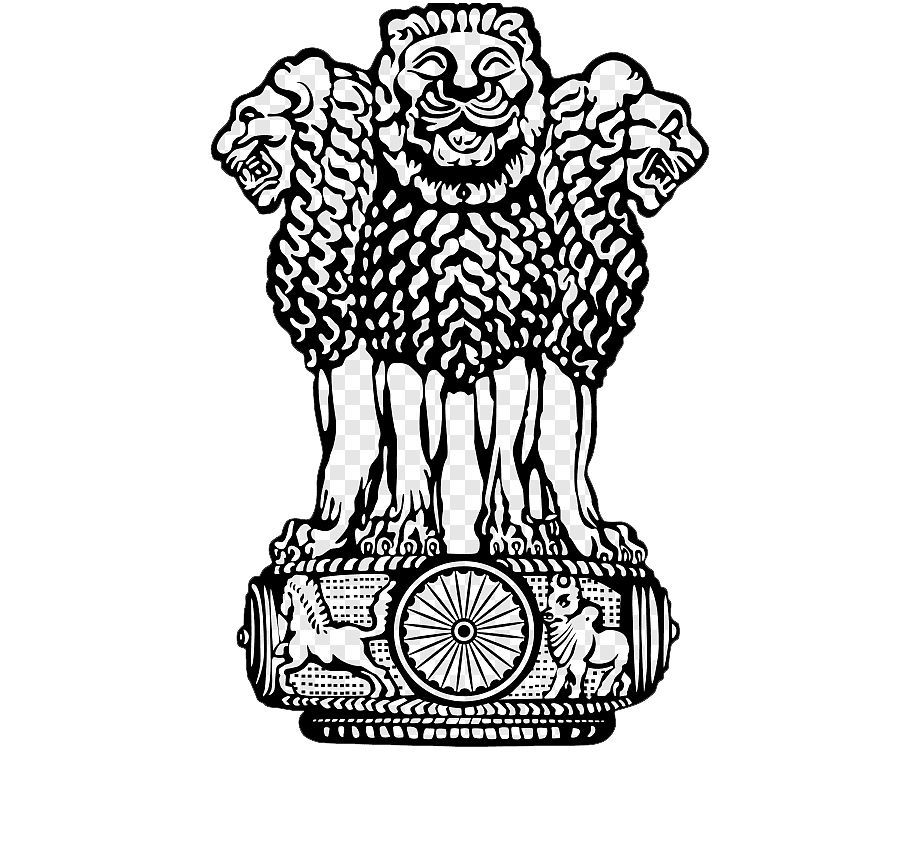The Department of Zoology started functioning with its first batch from July, 2016.Currently, it is the only Science department which offers honours programme. The total intake capacity is 25 students per academic session. The syllabus followed by the department is that prescribed by the affiliating university (i.e. B.U.). The faculty members of the department are highly qualified and efficient teachers. Apart from teaching, they are actively involved in research and consistently publish articles, papers, reviews, and chaptersin journals and edited volumes of national and international repute.
The department has a well-equipped laboratory with instruments required for practical courses. It also has several museum specimens from which the students can gain in-depth details about the representative animals from different phyla across the animal kingdom. Field studies are also held regularly to meet the requirements of the syllabus. They give an opportunity to the students to learn beyond their classrooms. However, the laboratory is still developing and will be fully equipped with hi-tech facilities in the coming years.
At present, Dr.AnimeshMondal, a faculty member of the department, is the principal investigator of a research project entitled “Interaction of biflavonoid with alpha synuclein and its potential implication in aggregation of amyloids.” funded by WBDSTBT. The funds received are helping to improve the laboratory facilities of the department.
Lecture method is mostlyfollowed by the teachers for theoretical courses using blackboard or Power Point Presentations as teaching aids. Demonstration method is followed for practical courses with heuristic approaches wherever applicable. Blended modes are also applied whenever possible. The department organizes online lectures, either singly or in collaboration with other department(s)/committees, from time to time where the students get chance to communicate with renowned speakers from different institutions. This not only serves as tool for experiential learning but also gives them a scope to know about the prospects of the subject. These programmes also develop an understanding of the multidisciplinarity of their subject and its relationships with social and environmental issues. Furthermore, they help to develop the students’ e-competence.
The department does not have its own seminar library but boasts of a good collection of books by Indian and Foreign authors from reputed publishing houses. They are available in the central library of the college. Techniques of assessment and evaluation are those advised by the affiliating University. Periodic class tests are held to assess the students’ performances and guide them for improvement. Internal assessments are conducted for both theoretical and practical courses as per the academic calendar of the institution.
Students passing out from the department have already enrolled for Masters Programme in various Universities like The University of Burdwan, Calcutta University and NetajiSubhas Open University. Some are also pursuing B.Ed. courses from various institutions across the State. A few have secured employment as in the Border Security Force (BSF).
The zoology laboratory in the college is often a fascinating hub of scientific exploration and discovery. It provides students with hands-on experience in studying the diverse world of animals, from microscopic organisms to complex vertebrates. Here, students can apply theoretical knowledge gained in lectures to practical situations, enhancing their understanding of animal biology, behavior, and ecology.The laboratory is typically equipped with various tools and instruments tailored to the study of zoology, including microscopes for examining cellular structures and specimens, dissection kits for exploring anatomy, and experimental setups for behavioral studies. It’s a space where students can engage in activities like specimen preparation, data collection, and analysis, fostering critical thinking and problem-solving skills essential for a career in zoology or related fields.
Furthermore, the zoology laboratory often serves as a collaborative environment where students work together under the guidance of experienced instructors, fostering teamwork and communication skills. It’s a place where curiosity thrives, and students have the opportunity to ask questions, propose hypotheses, and design experiments to test their ideas. At the undergraduate level, our department boasts two well-equipped practical laboratory rooms. These spaces are furnished with essential instruments such as UV-Spectrophotometer, digital balances, compound microscopes, spectroscope, microtome, binocular,camera, agarose gel electrophoresis apparatus, centrifuge, and other necessary equipment regularly utilized for academic activities. Various educational aids such as charts and models depicting different organisms enhance the learning experience. Furthermore, we take pride in our fully functional specimen display room, showcasing a diverse range of biological specimens for educational purposes.
To support research and academic endeavors, our department offers computer facilities with printing and internet access. These resources contribute to a dynamic learning environment, fostering both practical skills and theoretical knowledge in the field of biology. Top of FormBottom of ForOverall, the zoology laboratory is an integral part of the college experience for aspiring biologists, providing them with the practical skills and knowledge necessary for understanding the complex and wondrous world of animals.
The lab is engaged in studying biophysical properties of alpha synuclein which is linked to Parkinson’s Disease (PD). We are also investigating its interactive fate with some newly synthesized molecule.
Research collaborator-
Dr.Nakul C. Maiti (Senior Principal Scientist)
CSIR-Indian Institute of Chemical Biology
Project Title-
Interaction of biflavonoid with alpha synuclein and its’ potential implication in aggregation of amyloids.
Funding- Department of Science &Technology and Biotechnology, Govt. of West Bengal (WBDSTBT)
Principal Investigator- Dr.Animesh Mondal (Assistant Prof.,W.B.E.S., Dept. of Zoology)
Research Publication-
1.Structure specific neuro-toxicity of α-synuclein oligomer. Int J Biol Macromol. 2023 (A. Mondal et al)
2.Carbon-Chalcogenide Cross-Coupling Reactions in Water, Curr. Green Chem., 2024,Bentham(A. Mondal et al)
3. Role of phenol derived biometabolic compounds in bioregulation- Everyman’s Science 2024 (A. Mondal et al)
Book chapter-
Exploring Medical Biotechnology- in vivo,in vitro, in silico (Sequence Analysis to Decipher Protein Functions in Health and Disease) Taylor and Francis- A.Mondal-2024







